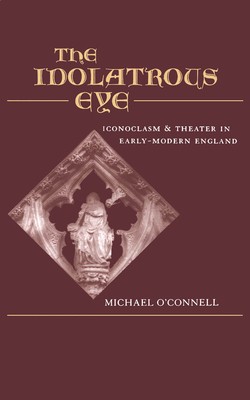
- We will send in 10–14 business days.
- Author: Michael O'Connell
- Publisher: Oxford University Press, USA
- ISBN-10: 019513205X
- ISBN-13: 9780195132052
- Format: 16.2 x 23.8 x 2.1 cm, kieti viršeliai
- Language: English
- SAVE -10% with code: EXTRA
Reviews
Description
This study argues that the century after the Reformation saw a crisis in the way that Europeans expressed their religious experience. Focusing specifically on how this crisis affected the drama of England, O'Connell shows that Reformation culture was preoccupied with idolatry and that the theater was frequently attacked as idolatrous. This anti-theatricalism notably targeted the traditional cycles of mystery plays--a type of vernacular, popular biblical theater that from a modern perspective would seem ideally suited to advance the Reformation project. The Idolatrous Eye provides a wide perspective on iconoclasm in the sixteenth century, and in so doing, helps us to understand why this biblical theater was found transgressive and what this meant for the secular theater that followed.
EXTRA 10 % discount with code: EXTRA
The promotion ends in 22d.16:10:02
The discount code is valid when purchasing from 10 €. Discounts do not stack.
- Author: Michael O'Connell
- Publisher: Oxford University Press, USA
- ISBN-10: 019513205X
- ISBN-13: 9780195132052
- Format: 16.2 x 23.8 x 2.1 cm, kieti viršeliai
- Language: English English
This study argues that the century after the Reformation saw a crisis in the way that Europeans expressed their religious experience. Focusing specifically on how this crisis affected the drama of England, O'Connell shows that Reformation culture was preoccupied with idolatry and that the theater was frequently attacked as idolatrous. This anti-theatricalism notably targeted the traditional cycles of mystery plays--a type of vernacular, popular biblical theater that from a modern perspective would seem ideally suited to advance the Reformation project. The Idolatrous Eye provides a wide perspective on iconoclasm in the sixteenth century, and in so doing, helps us to understand why this biblical theater was found transgressive and what this meant for the secular theater that followed.


Reviews